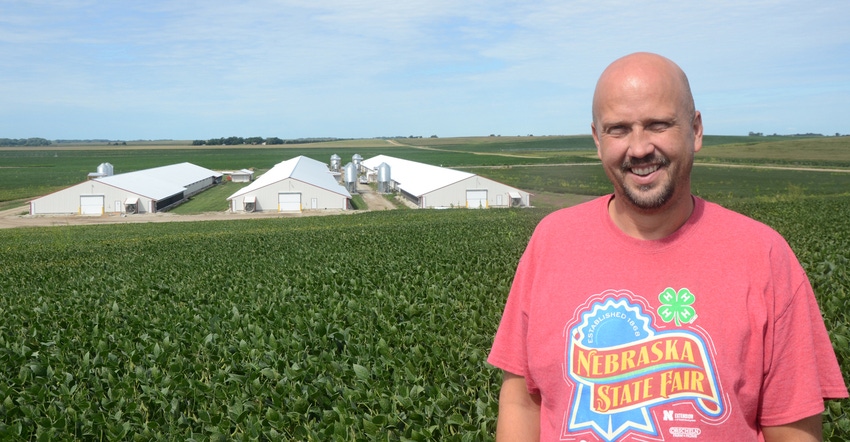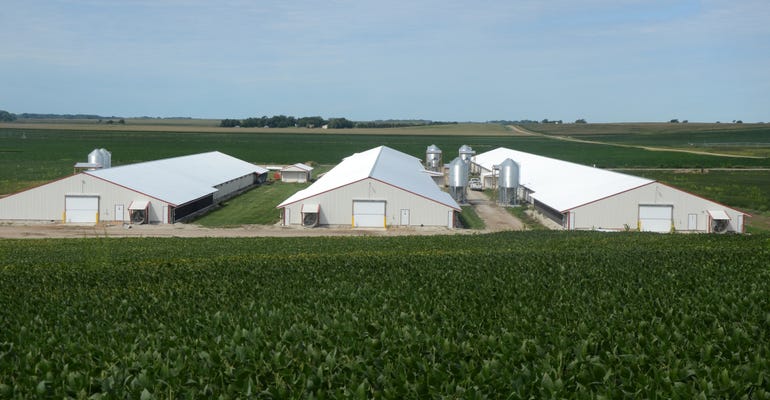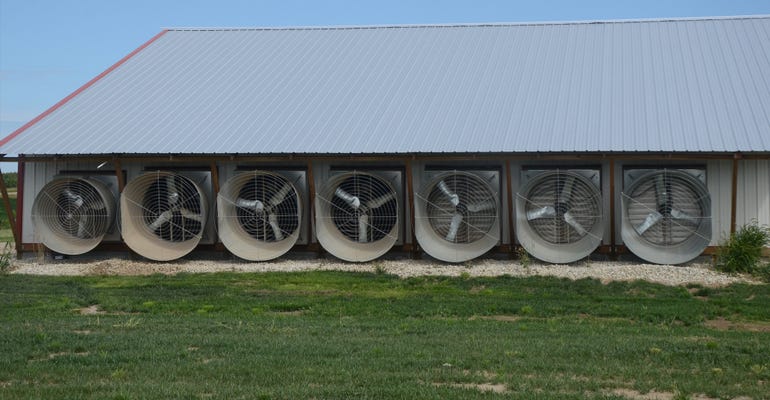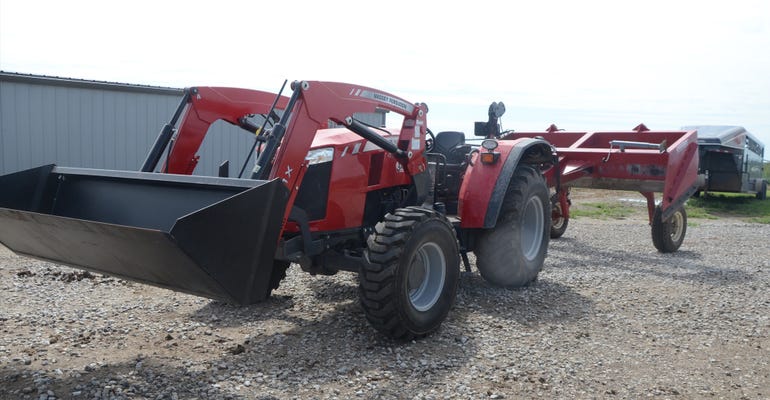
Scott Wagner is no stranger to diversification. The Hooper-area producer has grown seed corn, white corn, yellow corn, seed soybeans and yellow soybeans. He grows cover crops in the fall and winter, and backgrounds cattle on pasture and annual forage.
In his latest venture, however, he's taken on an entirely new production system: raising pullets for Lincoln Premium Poultry to supply Costco's new state-of-the-art poultry processing facility in Fremont, Neb.
Wagner's reasons for diving into poultry production are similar to the producers raising broilers for Costco, but he's always preferred to do things his own way. Unlike the 432 houses built in Nebraska to house broilers, the four houses on Wagner's farm house pullets — in addition to one rooster house.
"We did this from day one to bring other people back to the operation," he explains. "Finding ground to rent and cash flow and having long-term security, that's pretty difficult. You've got to think outside the box. I've got five kids, and with five children, you want to provide the opportunity the best you can — that doesn't mean they have to come back, it just means there's an opportunity."
"I was originally slated for eight to 12 broiler barns," he adds. "I felt with the requirements in pullet production, it fit my needs the best."
Willow Holoubek, grower engagement manager at Lincoln Premium Poultry, notes that while many producers in the area have started raising birds for similar reasons to Wagner, poultry production fits every operation differently.
"The project has been so beneficial to Nebraska because it has the ability to fit into so many situations," Holoubek says. "Every grower I have, their site is unique, and the reason they did it is unique. It has allowed people to move home from out of state."

LOCAL BENEFITS: In addition to helping young families come back to the farm, Willow Holoubek, grower engagement manager at Lincoln Premium Poultry, notes there are tax revenue benefits to local communities when new poultry barns are built.

Adjusting to a new system
With any new production system, there's a learning curve involved — and that includes the construction of the building and managing the building itself.
Lincoln Premium Poultry has helped growers through the learning process, with technicians on hand, and with training sessions to help new producers get up to speed.
Most parameters are monitored, and adjustments are made remotely using a smartphone — including monitoring average house temperature, static temperature, tunnel pressure, wind chill, bird weights, and controlling the cool chill pads.
It's something that takes time to become familiar with, and Wagner traveled to places such as Maryland, Virginia, Delaware, Alabama and Georgia — where poultry production is more prominent — to learn about it.
"Running a hog or cattle operation, I could talk to 50 people and figure it out," Wagner says. "But there isn't really anywhere to go to get that education on chicken barns. There are just surprises you weren't aware of, as there are in everything. I compare the building to having a brand-new planter. I don't care how mechanically inclined you are, you don't know anything. It took me about 20 days before I understood everything pretty well."
One of the big learning curves is managing ventilation.
"We have parameters set up with our coolers, and as long as the houses meet those parameters, the birds will do well," Holoubek explains. "Over time, you're learning how to keep that ventilation, temperature and humidity in the right setting to make sure chickens are doing as well as they can. If the weather changes, how does the ventilation need to change? It's a constant learning process."

WELL-VENTILATED: One big part of the learning curve is understanding how to properly ventilate a poultry barn, Scott Wagner says.

Holoubek notes some things have to be learned hands-on — such as bird health.
"My manager told me the most important tool in the poultry house is a 5-gallon bucket," she says. "You turn it over, sit on it, and look at the houses and get to know, what does it smell like? Is it too dusty? Are the birds content? You can learn a lot from your house by observing. Some things are hard to learn before the flock comes in, because it's hands-on. We're learning right along with them, because our managers who have years of experience are new to Nebraska. It's been a learning curve on all sides."
Doing things his own way
Finding labor can be another challenge for growers — some have learned that it takes a full-time employee, rather than a part-time employee, to manage a broiler or pullet site.
"There isn't a lot of labor available around here," Wagner says. "I was lucky I found someone 5 miles away. Employees like flexibility, ownership and appreciation for what they do. My dad always told me, 'Don't ask someone to do something you wouldn't do yourself.' We've fortunately been able to retain help due to those common-sense things."
And Wagner notes there are some things he likes to figure out for himself.
"I'm pretty independent — unless there's something I can't figure out, I'd prefer to figure it out myself," he says. "There's always something you look at and say, 'Why this way?' I always want to figure out better and easier ways of doing it."

FARM SHOP FABRICATION: As an early adopter, Scott Wagner likes to figure some things out for himself. This includes finding ways to keep his pullet building floors level and at the right firmness, which aids in bird performance.

This includes finding ways to keep the building floors level and the right firmness, which aids in bird performance. Wagner started with a box scraper pulled behind a utility tractor, but ultimately found a way to firm and level floors more efficiently.
"The box scraper works well, but if it's dry material [bedding], it will bunch and not spread out like it should," Wagner says. "I did research on a fluffer and found some plans on the internet. I had a neighbor fabricate it, we attached it to a box scraper, and it works perfectly."
Another part of the learning curve for new poultry producers is neighborhood outreach. What's been most surprising for Wagner — and his neighbors — has been the lack of odor because of proper ventilation. That's something he first noticed while visiting poultry farms in the Delmarva region.
"I was surprised to see chicken litter spread among multimillion-dollar houses, and nobody seemed to notice," he says. "I went to visit a poultry barn, and there was a whole housing development built after it — they were 400 feet away. I had over 20 neighbors ask me if we had birds yet at our county fair this year. I said, 'Yeah, I've had birds for a couple of months now.'"
About the Author(s)
You May Also Like






